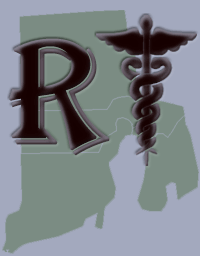Welcome to our Medical Information page!
Q: Who qualifies for medical marijuana in Rhode Island?
A: Those patients with a "debilitating medical condition" which is defined as
1) cancer, glaucoma, positive status for HIV, AIDS, Hepatitis C, or the treatment of those conditions,
or 2) a chronic debilitating disease or medical condition or its treatment that produces one or more of the following: cachexia (or wasting syndrome); severe, debilitating, chronic pain; severe nausea; seizures, including but not limited to, those characteristic of epilepsy; or severe and persistent muscle spams, including but not limited to, those characteristic of multiple sclerosis or Crohn's disease; or agitation of Alzheimer's Disease,
or 3) any other condition or its treatment approved by the RI Department of Health.
Click here to view RI Medical Society's letter about medical marijuana to physicians.
"Medical Use" is defined as
"acquisition, possession, cultivation, manufacture, use, delivery, transfer, or transportation of marijuana or paraphernalia relating to the consumption of marijuana to alleviate a registered qualifying patient's debilitating medical condition or symptoms associated with the medical condition."
"Supporting Research into the Therapeutic Role of Marijuana"
ACP supports increased research for conditions where the efficacy of marijuana has been established to determine optimal dosage and route of delivery. ...
Medical marijuana research should not only focus on determining drug efficacy and safety but also on determining efficacy in comparison with other available treatments. ...
ACP urges review of marijuana’s status as a schedule I controlled substance and its reclassification into a more appropriate schedule, given the scientific evidence regarding marijuana’s safety and efficacy in some clinical conditions. ...
ACP strongly urges protection from criminal or civil penalties for patients who use medical marijuana as permitted under state laws."
Click here for full report (13 pages)
Marijuana and Medicine: Assessing the Science Base (1999)
research conducted by National Academy of Sciences, Institute of Medicine.
"For patients, such as those with AIDS or ongoing chemotherapy, who suffer simultaneously from severe pain, nausea, and appetite loss, cannabinoid drugs offer broad spectrum relief not found in any other single medication." (emphasis added)
"In patients already experiencing sever nausea or vomiting, pills are generally ineffective because of the difficulty in swallowing or keeping a pill down, and slow onset of the drug effect. Thus an inhalation (but preferably not smoking) cannabinoid drug delivery system would be advantageous for treating chemotherapy-induced nausea."
"It is well recognized that Marinol's oral route of administration hampers its effectiveness because of slow absorption and patients' desire for more control over dosing. ... In contrast, inhaled marijuana is rapidly absorbed."
READ FULL BOOK ONLINE (267 Pages)
The report is a publication of the National Academy Press.
RIPAC Medical Information pages:
Alzheimer's Disease
HIV/AIDS
Cancer and Chemotheraphy
Crohn's Disease
Epilepsy & Seizures
Glaucoma
Hepatitis C
Multiple Sclerosis
Reiki article
Brochures for specific conditions:
HIV/AIDS
Aging
Arthritis
Gastro-Intestinal Disorders
Chronic Pain
Movement Disorders
Multiple Sclerosis
Cancer
Brochures prepared by Americans for Safe Access, a national organization based in Oakland, CA
